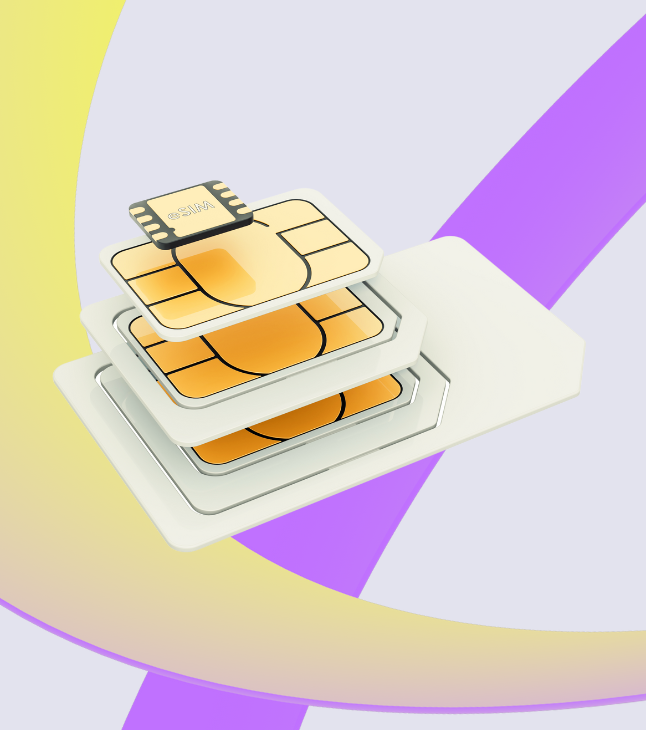When sending mobile data invoices to our clients, we often get a request to provide a detailed report. As we have seen an increase in those requests in recent years, we were interested to see the use that our clients were giving to those comprehensive and detailed reports. As expected, the results showed that those reports are being used for cost control. However, a fair amount of our clients stated that they need those reports to check their own contracts towards the end-users of the IoT product and services.
We learned that most of our clients have in their contractual terms fair use clauses for the consumption of mobile data and SMS services in combination with the products and services they provide. We also recognized that most of our clients using fair use policies have a great amount of manual effort to control those clauses. Therefore, this blog defines the term fair use policies and the implications it has for our clients’ operations to validate and control such contractual clauses. It is part of our larger set of blog posts that dive into everything related to IoT Monetization.
→ Related: Why IoT Monetization is the Next Big Thing for Businesses
IoT Monetization: Taxation & Currency Support in a B2C IoT Use Case
Defining fair use policies for IoT mobile data services
Fair use policies for mobile data services are very common in the telco business. Most of the people living in the legislative area of the EU have in their private mobile contracts for data and voice roaming a clause that considers fair use of mobile services in roaming conditions.
Fair use terms in the IoT business relate to a pricing strategy in which an IoT product or service is sold with mobile data included, e.g. a telematics supplier sells the App with monthly 500MB included for a total subscription price of xx Euro per month. In the contractual terms it is defined that those 500MB are fair use. In case of a higher consumption of mobile data, the provider of the IoT product or service can re-evaluate the monthly subscription fee. Hence, the provider of the telematics application may increase the price in those cases in which a customer is showing a different usage pattern than the anticipated, and excess may be rolled over under such circumstances.
The problem with fair use policies
In order to monitor and control fair use policies, IoT products and service providers are confronted with the following complexity:
- Their customers usually have a larger installed base of devices enabled with mobile data communications and, therefore fair use policies apply to the entire installed base, not only to one single device or connection.
- They need to understand which connection / SIM card belongs to which device and end user in order to split the invoice received from the telco service provider to their respective end-users.
Usually when a service provider creates a mobile data invoices, they consider only aggregated lines items in the invoice. In order to split this invoice to their end-users, the IoT product/service provider use call-detail reports to allocate the data usage to correlate real mobile data consumption with their contractual fair usage policies.
But, what is the problem with doing just that? The issue is simply that this process is usually manual, repetitive and very time consuming. In many cases the accounting departments are in charge of evaluating the fair usage of mobile data. We have also seen that when an end-user exceeds the fair use limit over a longer period in time, the IoT provider opens the contract to re-negotiate the commercial conditions. This leads to time delays because of back and forth negotiations, on top of a stressed customer relationship and, ultimately, a delay in recognizing additional revenues.
How you can address these issues
IoT products and service providers use fair use policies to be able to roll over excess costs related to mobile data services to their respective end-users. Assuming that most of IoT providers buy mobile data in pooled tariffs from their mobile service provider, their own cost control may not be the only driver for fair use policies. Going forward, fair use policies enable future upsell opportunities in case an end-user shows a very different usage pattern. We assume that both factors are equal drives for fair use policies.
We have learned that the application of fair use policies requires substantial resources and time to be enforced by the IoT product/service providers because of the issues outlined above.
Any technical solution to gain efficiency for the IoT app provider to the enforcement of fair use policies should be able to:
- relate a mobile connection with an IoT device or application
- relate mobile connections with an end-user account
- provide an automated way to evaluate real mobile data usage on end-user account level over all devices
- aggregate real mobile data usage on the end-user account level and to evaluate it against the contractual fair use over all devices and mobile connections associated
- provide an automated way to enforce higher price tiers in case the anticipated mobile data usage is exceeded. Those price-tiers should be contractually agreed to void the time-consuming price negotiations going forward.
Freeeway believes that IoT subscriptions considering the value of the IoT product or service, mobile data and other value drivers combined in a single tiered price have the necessary structure to automate their fair use policies.
Such a subscription model could look like the example below:

Subscription is here defined as: Number of devices + Application + Mobile Data Plan, compressed in a Tiered Pricing Model. It can automatically defined which Tier is applicable based on the number of active devices and mobile data usage on a monthly basis.
It’s time to automate invoicing and fair use policies
Clients with mobile data fair use policies have had to deal with the consequences of increasing efforts to control and enforce those towards their end-users. This has lead them in the past to quite significant operational expenditures.
Freeeway’s IoT Monetization Hub addresses those issues and enables IoT product/solution providers to automate these fair use policies with a subscription based commercial model. In addition, it offers full transparency on real-mobile data costs in relation to the subscription revenues our clients collect on a monthly basis.
The IoT Monetization Hub enables IoT product/service providers to achieve transparency of mobile data costs. It also provides a system to determine whether or not their IoT subscription revenues achieve the targeted business contribution, fully automated.
During our many years in the industry, we found numerous solutions based on clients pain points. These are now put together into our IoT Monetization Hub, where we provide all the processes and integrations for businesses who offer IoT connectivity as part of their connected IoT products and services. Automating and invoicing fair use policies is provided as part of Freeeway’s IoT Monetization Hub, enabling you to focus on your own smart products and services.
We want to support clients so they can focus on what they do best, which is creating great products. Connect now through the form below and an IoT Expert will contact you right away!
Your form entry has been saved and a unique link has been created which you can access to resume this form.
Enter your email address to receive the link via email. Alternatively, you can copy and save the link below.
Please note, this link should not be shared and will expire in 30 days, afterwards your form entry will be deleted.




